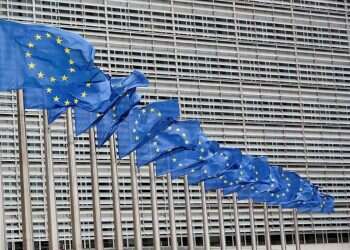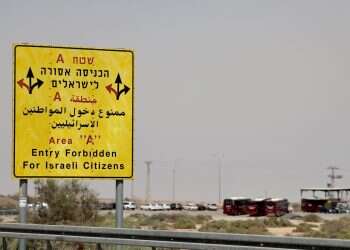The impressive international coalition that actively participated in the thwarting of the massive Iranian missile and drone attack on Israel last weekend was not the first case in Israeli history in which a far-reaching strategic, intelligence, and diplomatic partnership was formed around it under the auspices of the American government.
This was the "alliance of the periphery," which took shape in the late 1950s and included, in addition to Israel, Iran (during its pre-evolutionary era), Turkey, and Ethiopia. Like today, the alliance was anchored primarily in the members' fear of a radical and militant actor in the region, whose empowerment they perceived as a direct and severe threat to their security and regime.
Indeed, it was revolutionary Egypt, under the leadership of then-President Gamal Abdel Nasser, that acted in the entire region to further undermine the status of the last pro-Western bastions in the region and to deteriorate them into violent chaos.
Today's coalition operating alongside Israel is indeed much more encompassing than the one that emerged in 1959. Yet, it illustrates the fact that with the shadow of a common and severe threat looming, the foundation and enhancement of partnerships are repeatedly expedited, which in the recent past were partial or fraught with tension and friction.
The necessity of a military alliance
The American administration's role today differs significantly from its contribution to the "alliance of the periphery." Sixty-five years ago, even before Washington became Israel's declared ally, the US maintained a low profile as much as possible in everything related to its involvement in the worsening Egyptian challenge.
This time, however, US President Joe Biden's effort to weave all the coalition's threads together was intensive and accompanied by open threats towards Iran. It is undoubtedly vital that the White House projects strength, credibility, and determination towards the "Axis of Evil" at the height of the election year. Any sign of weakness or hesitation in the face of the Iranian-Russian-Chinese axis would evoke memories of the hasty retreat of American forces from Kabul, thus further strengthening the image of the American eagle as a "paper eagle." Therefore, forming such a complex coalition that effectively acts against a determined adversary serves as compelling evidence of the necessity of a military alliance. This is especially true given the declared aspiration of Republican presidential candidate Donald Trump to gradually disengage from all its multilateral commitments and retreat into the American mainland.
A defining event
As for Israel's role in the coalition, There is no doubt that the Israeli Air Force's proven and impressive capabilities, coupled with its distinct and extraordinary technological skills in almost hermetically defending Israeli airspace, were well-received not only in Iran but also in Moscow and Beijing. There is no denying that they contributed, almost immediately, to the perception of the moderate Muslim-Sunni world regarding the importance of strengthing its ties with Israel.
In this regard, Israel's demonstration of its military capabilities was a defining event, with much potential to contribute to the formation and establishment of a new regional architecture that will add a strategic and operational dimension to the Abraham Accords – especially against the backdrop of the shock of Oct. 7, which undoubtedly raised questions and concerns among current and potential partners regarding Israel's ability to prepare for future attacks and its ability to defend itself against murderous terror attacks independently.
In light of this, Prime Minister Benjamin Netanyahu stands at a fateful crossroads. Over the past year, he has prioritized and preferred considerations of his political survival over advancing the State of Israel's diplomatic, security, and social goals. This time, things may be different. A unique window of opportunity is opening to create a new, stable, and united Middle East, which will be the second tier of the "Abraham Accords." This tier will be populated by new regional players, led by Saudi Arabia, which, together with the existing infrastructure, will provide Israel with increased strength and security, not to mention broad international legitimacy.

Restraint will not compromise security
In a cold and calculated assessment, the question arises whether it is reasonable to endanger these assets, which are within reach, and instead insist on issues such as the return of Palestinians to the north of the Gaza Strip and even the nature of the inter-Arab force that will govern the Gaza Strip after the war (provided it does not include Hamas or its proxies in any way). Does Netanyahu's dependence on his right-wing partners outweigh the creation of a new reality, which, among other things, will secure his legacy, even if it comes at a certain cost? And is it essential to view Israel's deterrence policy as a rigid doctrine that disregards context and specific circumstances?
In the Persian Gulf War, then-Prime Minister Yitzhak Shamir decided not to respond to Iraq's Scud missile attacks. Shamir correctly understood that dogmatic adherence to this doctrine would strain Arab support in the broad coalition that US President George H.W. Bush had built against Saddam Hussein following Iraq's invasion of Kuwait, thus undermining unity. Did Israel's restraint policy affect its doctrine of deterrence? On the contrary, the abundance of benefits and grants that the American government and Congress showered on Israel due to its restraint were significant compensation for its inaction, which, if indeed carried out and led to the coalition's dissolution, would have severely undermined its security and international standing.
The conclusion is clear: Unless Israel is content with a controlled, cautious, and limited response to Iran's attack, the danger of being dragged into a violent and radical vortex may erase and nullify its achievements in countering the Iranian provocation, thus jeopardizing the diplomatic and strategic breakthroughs at hand. Anything beyond such a response could complicate things with the Russians, who are currently strengthening their grip on the region, and with the vengeful ayatollah regime.




